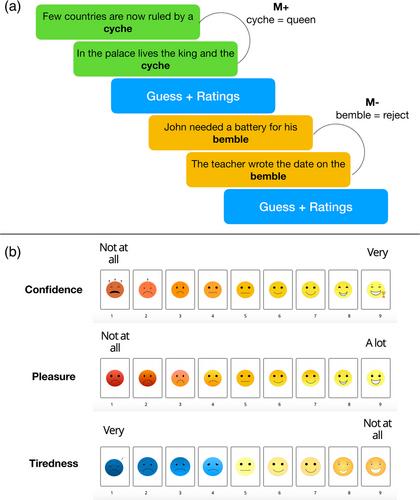The role of intrinsic reward in adolescent word learning
Abstract
Relatively little work has focused on why we are motivated to learn words. In adults, recent experiments have shown that intrinsic reward signals accompany successful word learning from context. In addition, the experience of reward facilitated long-term memory for words. In adolescence, developmental changes are seen in reward and motivation systems as well as in reading and language systems. Here, in the face of this developmental change, we ask whether adolescents experience reward from word learning, and how the reward and memory benefit seen in adults is modulated by age. We used a naturalistic reading paradigm, which involved extracting novel word meanings from sentence context without the need for explicit feedback. By exploring ratings of enjoyment during the learning phase, as well as recognition memory for words a day later, we assessed whether adolescents show the same reward and learning patterns as adults. We tested 345 children between the ages of 10–18 (N > 84 in each 2-year age-band) using this paradigm. We found evidence for our first prediction: children aged 10–18 report greater enjoyment for successful word learning. However, we did not find evidence for age-related change in this developmental period, or memory benefits. This work gives us greater insight into the process of language acquisition and sets the stage for further investigations of intrinsic reward in typical and atypical development.
Research Highlights
- We constantly learn words from context, even in the absence of explicit rewards or feedback.
- In adults, intrinsic reward experienced during word learning is linked to a dopaminergic circuit in the brain, which also fuels enhancements in memory for words.
- We find adolescents also report enhanced reward or enjoyment when they successfully learn words from sentence context.
- The relationship between reward and learning is maintained between the ages of 10 and 18.
- Unlike in adults, we did not observe ensuing memory benefits.


 求助内容:
求助内容: 应助结果提醒方式:
应助结果提醒方式:


